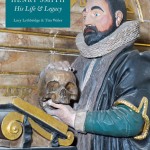English charity and the Turkish threat
The Henry Smith charity
When a friend of mine was at university he benefited from a charity established in his Wiltshire village for ‘indigent scholars’. He didn’t get much money, but it was typical of the thousands of similar bequests in towns and villages scattered across the country. These trusts were established for the most part between c. 1400 and c. 1800 and donors focused on poor students, widows, orphans, the sick and those who had fallen on hard times. But some people left money specifically to ransom Christians who had been enslaved by the Ottoman Turks. Christopher Howse mentioned one such in the Daily Telegraph on 21 February (my thanks to Jo Leadbetter for bringing the column to my attention). Howse narrates how Henry Smith left £1,000 in 1628 ‘to buy land for perpetuity to redeem poor captives and prisoners from Turkish tyranny’.
 It is not at all surprising to find such a bequest in Charles I’s England because Englishmen and women retained a lively interest in the Turks and their conquests.
It is not at all surprising to find such a bequest in Charles I’s England because Englishmen and women retained a lively interest in the Turks and their conquests.
James I had tinkered with the idea of taking part in a crusade, and in 1639 the Anglican clergyman and Cambridge scholar Thomas Fuller (1608–61) would publish the first history of the crusades in English. Fuller’s text is lively and accessible, very revealing about early modern attitudes towards crusading. The Holy Land crusades were tainted by their association with Catholicism and above all with the Popes, and Europe’s princes would not fall for it again: ‘princes are not now, like the native Indians, to be cozened with glass and gaudy toys.’ On the other hand, the defence of Europe and its civilised values – Catholic and Protestant alike – against the ferocious and ambitious Ottomans remained a noble and indispensable undertaking. Fuller was full of praise for Hungary, because ‘it is at this day Christendom’s best land-bulwark against the Turks, where this pretty custom is used, that the men wear so many feathers as they have killed Turks’.
In a sense then Henry Smith’s bequest might be expected, though the sum he left was certainly impressive, the equivalent of a fortune today. Henry’s focus was the Barbary pirates, who may well have captured English merchants (kinsmen of Henry?) during their raids. Whether he knew it or not, he was subscribing to a charitable practice – prisoner ransom – which had a history even longer than that of crusading. Its most famous offshoot is the Mercedarian Order, established in Barcelona in 1218, which still exists today. So too does the Henry Smith Charity, which in 2012 gave away £27.1m. Even today its goals include ‘the relief and rehabilitation of those persons who are or have been slaves or serfs and their dependants who are in need or distress or for preventing their seizure.’
Reference
http://www.henrysmithcharity.org.uk/documents/2012accountsFINAL.pdf (the charity’s objects are on p. 25). Henry Smith himself is the subject of a new book; ‘HENRY SMITH – His Life and Legacy’ by Lucy Lethbridge and Tim Wales, from Church House Booksellers, ISBN: 978-0-9930945-0-7
http://www.henrysmithcharity.org.uk/history.html – The website of the Henry Smith charity


 Subscribe to Norman Housley's posts
Subscribe to Norman Housley's posts
Recent Comments